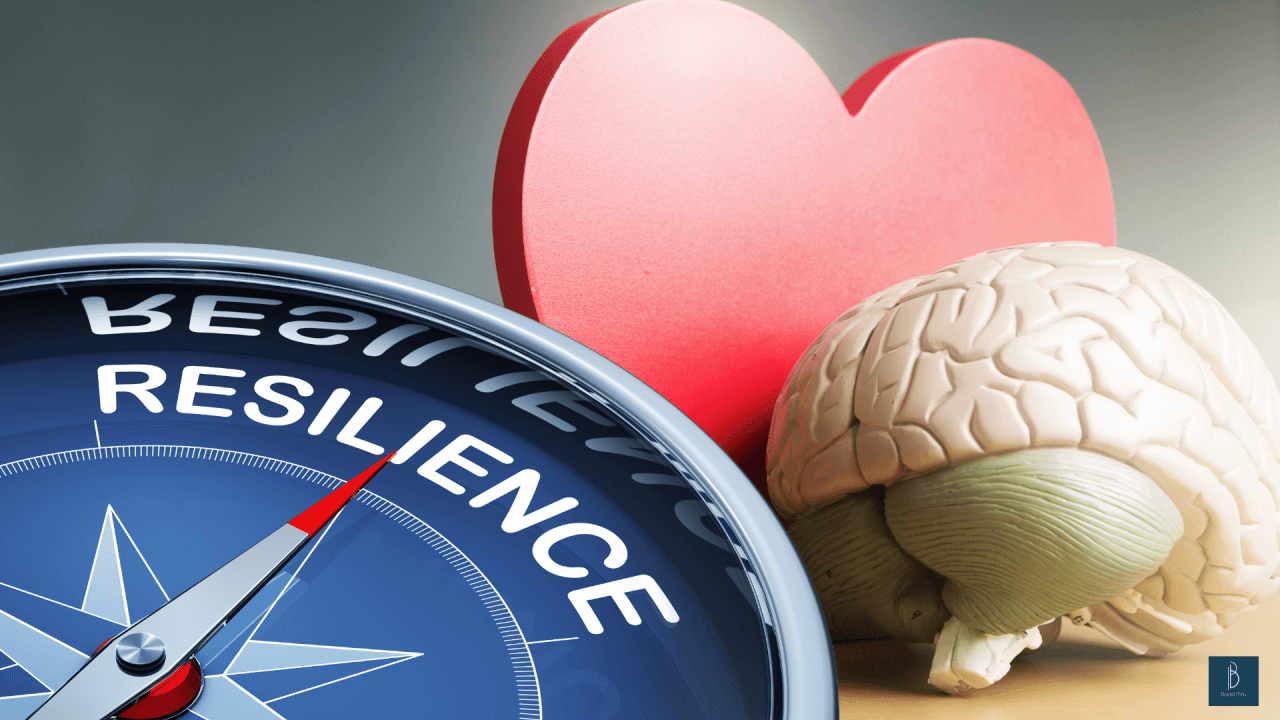
Introduction
Some people internalize the pain to try to heal but shut down emotionally; some try to be strong and then eventually numb. Resilience does not mean losing feelings to endure the trials we face. Resilience is demonstrating faith, wisdom, and balance in the face of our trials. As Muslims, we are steered toward being strong while still holding our hearts open in mercy to others. From psychology, we learn that resiliency is a protective factor in our mental health. Together, we can develop a robust heart with plenty of compassion.
What does resilience mean?
Resilience is the ability to bounce back from tough times. Resilience does not mean pretending that pain is not happening. Also, resilience is being able to rise again after some time. The Qur’an teaches: “Verily, with hardship comes ease” (94, 6). This teaching serves as a reminder that use trials are temporary. A resilient person expresses optimism that their pain has meaning and that healing will come.

The threat of emotional numbness
Emotional numbness may appear to be a strength. But the truth is, numbness stops growth. It is not possible to connect deeply to Allah or with people when your heart is numb. According to studies in psychology, emotional suppression leads to anxiety and depression. In some research conducted by the American Psychological Association, it was found that we experience heightened levels of stress when we try to suppress our emotions. Therefore, emotional numbness is not resilience.
Resilience in the life of Prophet Muhammad ﷺ
The Prophet ﷺ experienced extreme hardship. He lost his parents at an early age. He was mocked, attacked, and exiled. Yet in all of this, he never went totally numb emotionally. He wept when his son, Ibrahim, died. He grieved deeply for Khadijah’s death. Yet, he continued to have faith, and in faith he continued his mission. This balance between emotion and strength is a picture of resilience. His life is evidence that you can feel pain without being broken.
Read more: The Truth About Mental Therapy’s Success
The Wisdom of the Khalifas
The Rightly Guided Khalifas modeled resilience, too. For Hazrat Abu Bakrرضياللهعنه, he evidenced agility after the passing of the Prophet ﷺ, while those around him were impaired. He reminded those around him: “Whoever worships Muhammad, know that Muhammad has died. Whoever worships Allah, know that Allah is Ever-Living.” His heart was grieving, while his mind was steady. Likewise, Hazrat Umar رضياللهعنه was also resilient in difficult leadership roles. He executed justice with firmness, yet wept in prayer at night. They balanced strength with softness, but never went numb.
Psychology and Resilience
In psychology, resilience is understood to be “positive adaptation to stress and adversity.” Most people confuse acceptance with avoidance: acceptance does not mean denying our feelings; acceptance is the act of feeling what we feel. Interestingly, in an experimental study presented in the Journal of Personality and Social Psychology, those who learned to embrace their emotions recovered from stressful experiences better, while those who numbed their feelings endorsed higher levels of burnout. Resilience is about working through pain, not avoiding it.
How to develop Resilience:
- Accept your feelings. Don’t make yourself wrong or weak for feeling sad, afraid, or human.
- Reframe your hardship. Instead of asking, “Why me?” ask, “What can I learn from this?”
- Create your support systems. Reach out to someone from your circle who makes you feel energized.
- Renew your faith (belief). When we pray, when we recite Qur’an, or even when we make dua, we remember that Allah is ultimately in control.
- Appreciate. By keeping our emphasis on what we have – even if they are really small blessings – our grief and sadness can coexist with hope.
Read more: 5 Inner Battles That Damage Your Love Life
Case study: An example from a psychological perspective.
Imagine you have a patient who is struggling after being rejected in a job application process. Initially, he suppressed his sadness and showed a happy face, which created panic as well. Then he came to therapy and felt it was possible to share his stories. He wrote in journals, cried, and prayed. His anxiety decreased at a gradual pace over time; he eventually found a job, and he achieved a sense of inner peace. However, his healing outcome came from acceptance (rather than numbness).
Case Study: The example of Prophet Muhammad ﷺ in Ta’if
When the Prophet Muhammad ﷺ went to Ta’if, he was rejected and insulted. He was bleeding from stones thrown at him. Yet, he did not get bitter or distracted by his detractors. He raised his hands and said in prayer: “If you have not made angry, I do not care.” When he raised his hands in prayer and fulfilled his need for support, that was survival. He felt pain in the body and sadness in the heart, yet faith was still intact. That is true strength without maintaining emptiness.

How to Balance Strength and Sensitivity:
A resilient mind preserves the heart. Cry when you need to. Laugh when you can. Pray when you are weak. The only thing not to do is lose hope. The difference between emotional numbness and emotional strength is the closure or opening of doors to growth. The balance lies in being able to hold the two together: pain and hope.
Building Resilience: Through Faith
Islam promotes patience (sabr), reliance upon Allah (tawakkul), and thankfulness (shukr). All these perspectives bolster the mind. “And be assured that Allah is with the patient” (Qur’an 2:153). Whenever we lean on Allah’s promise of mercy, our resilience grows. Faith opens a pathway to engage with our feelings yet disengage from them.
Concluding Thoughts
Resilience does not mean to be cold. It means being strong, while still being soft. It is recognizing our suffering, yet remaining present in it, so that we are not crushed by it. The Prophet ﷺ and the Khalifas demonstrated this balance. A resilient heart mourns but heals, too. True strength is remaining human, not desensitized.



Leave a Reply